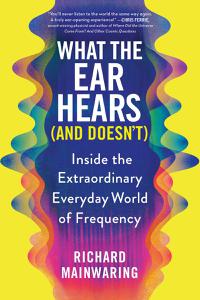
What the Ear Hears (and Doesn't): Inside the Extraordinary Everyday World of Frequency by Richard Mainwaring
English | December 27th, 2022 | ISBN: 1728259363 | 320 pages | True EPUB | 4.56 MB
"You'll never listen to the world the same way again. A truly ear-opening experience!" -Chris Ferrie, award-winning physicist and author of Where Did the Universe Come From? And Other Cosmic Questions

Phyllis Vega, "What Your Birthday Reveals About You: 366 Days of Astonishingly Accurate Revelations About Your Future, Your Secrets, and Your Strengths"
English | 2005 | pages: 481 | ISBN: 0785837973 | PDF | 83,4 mb
Discover the secrets of your personality and destiny! Master astrologer Phyllis Vega reveals what the stars hold for you-and everyone you know-with a detailed analysis for each birthday in the year, combining astrology and numerology to paint a true picture of the characteristics, desires, and destinies of people born on that day.
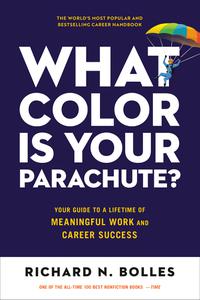
What Color Is Your Parachute?: Your Guide to a Lifetime of Meaningful Work and Career Success by Richard N. Bolles
English | December 27th, 2022 | ISBN: 1984861204 | 352 pages | True EPUB | 18.54 MB
The groundbreaking, indispensable guide to rewarding work and a fulfilling life-more than ten million copies sold!
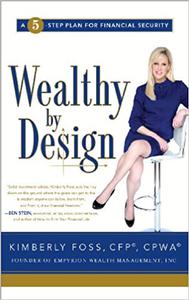
Kimberly Foss, "Wealthy by Design: A 5-Step Plan for Financial Security"
English | ISBN: 1608325733 | 2013 | 184 pages | EPUB | 1495 KB
The most powerful word in wealth building is choice.
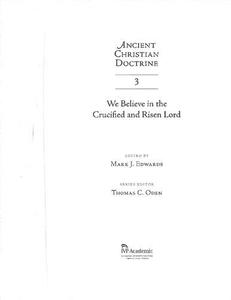
We Believe in the Crucified and Risen Lord By Mark J. Edwards, Thomas C. Oden (editors)
2009 | 194 Pages | ISBN: 0830825339 | PDF | 13 MB
The resurrection changed everything. "But for the resurrection," writes Mark J. Edwards, "there would have been no reason to argue for a union of two natures in the person of Christ, let alone for a dyad or triad in the Godhead. All that he had said and done in the course of his earthly ministry would have sat well enough with the character of a prophet who excelled such predecessors as Isaiah and John the Baptist only in power and closeness to God." That is the story that unfolds as Edwards gathers together the most salient comments from the early church on the latter half of the second article of the Nicene Creed on God the Son as the crucified and risen Lord. The deliberations of ancient Christian writers on these matters are regarded now as the nucleus of Christology. The work of Christ is customarily considered, in Western Christendom at least, as the principal object of his coming. That Christ died for our sins was an axiom of all apostolic preaching. In these pages we see that the doctrines of the Trinity and the incarnation were not the second thoughts of Christendom after its encounter with Greek philosophy. Rather they were forced on the church by its refusal to adopt the polytheism of the Greeks as a means of reconciling the sovereignty of God with the exaltation of Christ as Lord. It is ultimately in the work of Christ that the essentials of his Person are revealed. The church's early teachers ultimately combine to denounce the critical maneuvers that would persuade us that the Scriptures do not mean what they plainly say. Here, as throughout the Creed, we see how the early church rooted all its claims in Scripture.
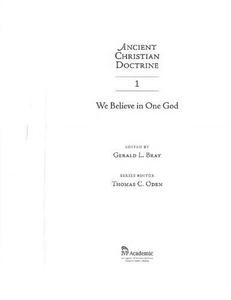
We Believe in One God By Gerald L. Bray (editor), Thomas C Oden (editor)
2009 | 159 Pages | ISBN: 0830825312 | PDF | 19 MB
We believe in one God, the Father. The opening clause of the Nicene Creed can be summed up in a single word--monotheism. In the early centuries of the church, this striking doctrine stood starkly against a cultural background of multiple deities and spiritual powers. While it clearly builds on its Jewish heritage, calling God Father anticipates the Father-Son relationship in the Godhead that early Christians knew and robustly upheld. The first article of the Nicene Creed also presupposes that there is an objective body of teaching that Christians are expected to confess as their faith. This idea seems normal and natural to us, but it was a novelty in the ancient world. Neither Judaism nor any pagan religion or philosophy could claim to have a closely defined set of beliefs that everyone adhering to it was expected to profess publicly and defend against all comers. While this article on God the Father is the shortest and arguably oldest portion of the Creed, it fully sets forth the fundamental understanding of God as creator and originator of all that is. This commentary in its selection of texts from the early church highlights the common understanding of the One God in three Persons, elucidating the church's understanding of divine attributes and trinitarian relations.
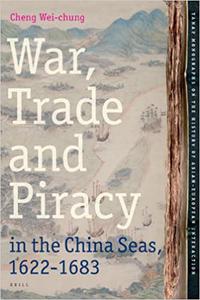
Weichung Cheng, "War, Trade and Piracy in the China Seas (1622-1683)"
English | 2013 | ISBN: 9004250662 | PDF | pages: 389 | 4.9 mb
The fall of the Ming allowed Cheng Cheng-kungalias Coxingaand his sons to create a short-lived but independent seaborne regime in Chinas southeastern coastal provinces that competed fiercely, if only briefly, with Spanish, Portuguese, Dutch and English merchants during the early stages of globalization.
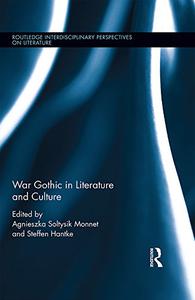
Steffen Hantke, Agnieszka Soltysik Monnet, "War Gothic in Literature and Culture"
English | 2015 | ISBN: 1138938211, 0367874393 | PDF | pages: 291 | 2.3 mb
In the context of the current explosion of interest in Gothic literature and popular culture, this interdisciplinary collection of essays explores for the first time the rich and long-standing relationship between war and the Gothic. Critics have described the global Seven Year's War as the "crucible" from which the Gothic genre emerged in the eighteenth century. Since then, the Gothic has been a privileged mode for representing violence and extreme emotions and situations. Covering the period from the American Civil War to the War on Terror, this collection examines how the Gothic has provided writers an indispensable toolbox for narrating, critiquing, and representing real and fictional wars. The book also sheds light on the overlap and complicity between Gothic aesthetics and certain aspects of military experience, including the bodily violation and mental dissolution of combat, the dehumanization of "others," psychic numbing, masculinity in crisis, and the subjective experience of trauma and memory. Engaging with popular forms such as young adult literature, gaming, and comic books, as well as literature, film, and visual art, War Gothic provides an important and timely overview of war-themed Gothic art and narrative by respected experts in the field of Gothic Studies. This book makes important contributions to the fields of Gothic Literature, War Literature, Popular Culture, American Studies, and Film, Television & Media.
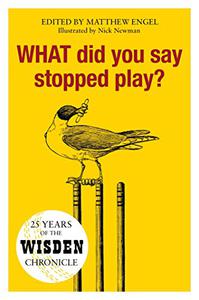
Matthew Engel, Nick Newman, "WHAT Did You Say Stopped Play?: 25 Years of the Wisden Chronicle"
English | 2018 | ISBN: 1472954386 | PDF | pages: 222 | 10.0 mb
It's normal for rain to stop play in cricket. But that's not all: flying objects, passing dictators, animals of all kinds including a very improbable tiger-they have all had the same effect. But even when the game keeps going, cricket is a magnet for the weird and wonderful.
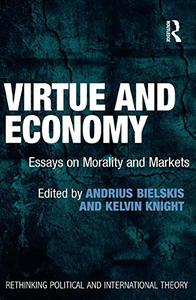
Andrius Bielskis, Kelvin Knight, "Virtue and Economy: Essays on Morality and Markets"
English | 2015 | ISBN: 1472412567 | PDF | pages: 264 | 2.1 mb
Interest in Aristotelianism and in virtue ethics has been growing for half a century but as yet the strengths of the study of Aristotelian ethics in politics have not been matched in economics. This ground-breaking text fills that gap. Challenging the premises of neoclassical economic theory, the contributors take issue with neoclassicism's foundational separation of values from facts, with its treatment of preferences as given, and with its consequent refusal to reason about final ends. The contrary presupposition of this collection is that ethical reasoning about human ends is essential for any sustainable economy, and that reasoning about economic goods should therefore be informed by reasoning about what is humanly and commonly good. Contributions critically engage with aspects of corporate capitalism, managerial power and neoliberal economic policy, and reflect on the recent financial crisis from the point of view of Aristotelian virtue ethics. Containing a new chapter by Alasdair MacIntyre, and deploying his arguments and conceptual scheme throughout, the book critically analyses the theoretical presuppositions and institutional reality of modern capitalism.


